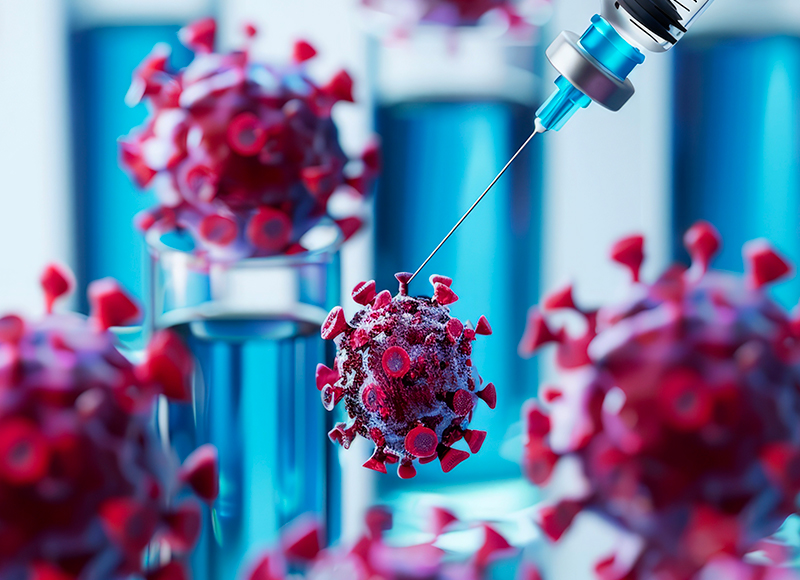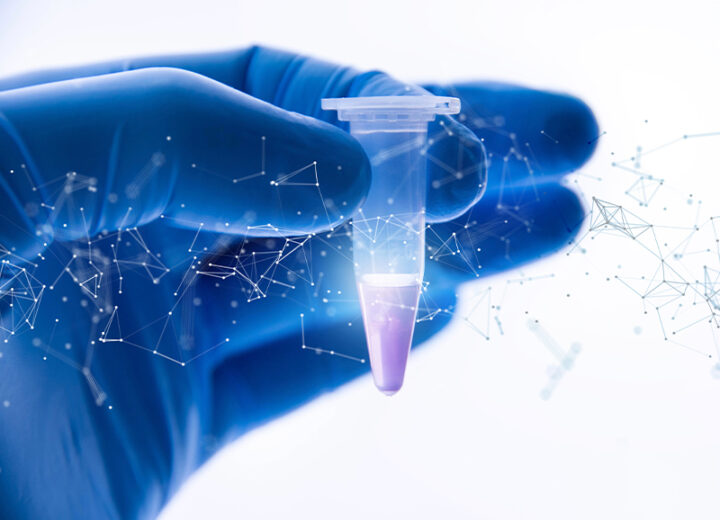23 July 2024
How are recombinant proteins advancing healthcare?

The use of recombinant proteins in medicine has revolutionized life sciences and healthcare, offering groundbreaking solutions beyond traditional pharmaceuticals.
These engineered proteins play crucial roles in diagnostic tools, vaccine development, and regenerative medicine, driving advancements in various medical fields.
Below, we’re exploring the broader applications of recombinant proteins in medicine, highlighting examples in four core areas:
3. Regenerative medicine, and tissue engineering
4. Medical treatments themselves
We’ll also discuss how these proteins can enhance medical treatments, talk about the advantages of our top-notch products, and cover our innovative production techniques.
1. The role of recombinant proteins in diagnostic tools
The use of recombinant proteins in diagnostic tools has significantly improved the detection of diseases, enabling timely and appropriate medical interventions.
Diagnostic tools are critical for early detection and accurate diagnosis of diseases.
Recombinant proteins, particularly recombinant antigens, are used in these tools to enhance their sensitivity and their specificity. These antigens, produced through recombinant DNA technology, provide a consistent and reliable source for diagnostic tests, ensuring high-quality and reproducible results.
By incorporating recombinant antigens, diagnostic tests can detect specific antibodies or pathogens in a patient’s sample, leading to more accurate diagnoses of infectious diseases. These could include HIV, hepatitis, and Lyme disease.
2. How are recombinant proteins furthering vaccine development?
Vaccine development has greatly benefited from the use of recombinant proteins. Traditional vaccines often rely on inactivated or attenuated pathogens, which can pose safety risks and production challenges.
Recombinant protein-based vaccines, on the other hand, use specific proteins from the pathogen to elicit an immune response without the need for the whole organism. It’s an approach that not only enhances safety but also allows for targeted immune responses.
For an example of this in action, we can turn to the development of the HPV (Human Papillomavirus) vaccine.
The vaccine uses recombinant proteins to mimic the virus’s outer coat, stimulating the body’s immune system to produce antibodies. This targeted approach has proven highly effective in preventing HPV infections and reducing the incidence of related cancers.
The rapid development of COVID-19 vaccines also showcased the power of recombinant protein technology.
Vaccines such as Novavax use recombinant spike proteins from the SARS-CoV-2 virus to induce a protective immune response. This method allowed for swift and scalable production, which contributed significantly to global vaccination efforts.
RELATED: The future of recombinant proteins
3. Recombinant proteins, regenerative medicine, and tissue engineering
Regenerative medicine and tissue engineering are promising fields that aim to restore or replace damaged tissues and organs. Recombinant proteins, particularly growth factors, play a vital role in these areas by promoting cell proliferation, differentiation, and tissue repair.
Growth factors are proteins that regulate various cellular processes, including cell growth and division.
In tissue engineering, recombinant growth factors are used to stimulate the growth of cells on scaffolds, which leads to new tissues being formed.
For example, recombinant bone morphogenetic proteins (BMPs) are used to promote bone growth and healing. The result? The regeneration of bone tissue, a reduction in the need for bone grafts, and enhanced recovery.
Another example can be found in wound healing, where recombinant growth factors accelerate the repair process by stimulating the migration and proliferation of cells involved in tissue repair.
4. Recombinant proteins and medical treatments
The use of recombinant proteins in medicine offers numerous benefits in medical treatments, including improved accuracy, and consistency.
One of the key advantages of recombinant proteins in medical treatments is the ability to produce proteins with high precision and consistency. By using recombinant DNA
sequence technology, we can generate large quantities of specific proteins with identical properties, ensuring uniformity across different batches. This consistency is crucial for applications including diagnostic tests and treatments, where reliability and reproducibility are paramount.
Recombinant proteins also enable targeted and specific medical interventions – such as the targeted destruction of tumor cells – while sparing healthy tissues. Scientists can create treatments with fewer side effects and better results by designing proteins to target certain molecules or cells. This lowers the chance of negative reactions during treatment.
Read all about recombinant proteins and biomedicine here.
Our innovative production techniques
At Cocoon, we’re at the forefront of recombinant protein production, leveraging innovative techniques to address industry challenges and support medical advancements. Our CrisBio® platform utilizes insect chrysalises as natural bioreactors, enabling cost-effective and scalable production of high-quality recombinant proteins. This unique approach offers several advantages over traditional methods, including reduced production costs, increased yields, and shorter production times.
By using insect chrysalises, we can produce recombinant proteins more efficiently, ensuring a consistent and reliable supply for medical applications. This method also allows for the production of complex proteins that are difficult to synthesize using conventional systems. The high quality and purity of our recombinant proteins make them ideal for use in a wide range of biomedicine applications, including:
· Diagnostic tools
· Vaccine development
· Regenerative medicine.
Our commitment to quality and innovation ensures that our recombinant proteins meet the stringent requirements of the medical field. By providing high-quality and cost-effective solutions, we’re driving advancements in healthcare and supporting the development of novel therapies and diagnostic tools.
Combatting industry challenges
The biomedicine industry faces several challenges, including high production costs, scalability issues, and regulatory hurdles. Our approach addresses these challenges by providing a sustainable and efficient method for producing recombinant proteins.
The use of insect chrysalises as bioreactors reduces the need for expensive infrastructure and minimizes production costs. It also ensures high yields and consistent quality, meeting stringent requirements for clinical and commercial applications.
What’s more, our platform can streamline the regulatory approval process by providing consistent and high-quality recombinant proteins. Regulatory agencies require extensive documentation and quality control for therapeutic products. The precision and consistency of our recombinant proteins facilitate compliance with these regulations, accelerating the path to market for new therapies.
We’re reinventing protein production
Recombinant proteins are transforming the landscape of medicine, offering innovative solutions beyond traditional pharmaceuticals.
Their applications in diagnostic tools, vaccine development, and regenerative medicine are revolutionizing healthcare. Learn more about our revolutionary CrisBio® platform and discover how our custom recombinant protein solutions can advance healthcare.


